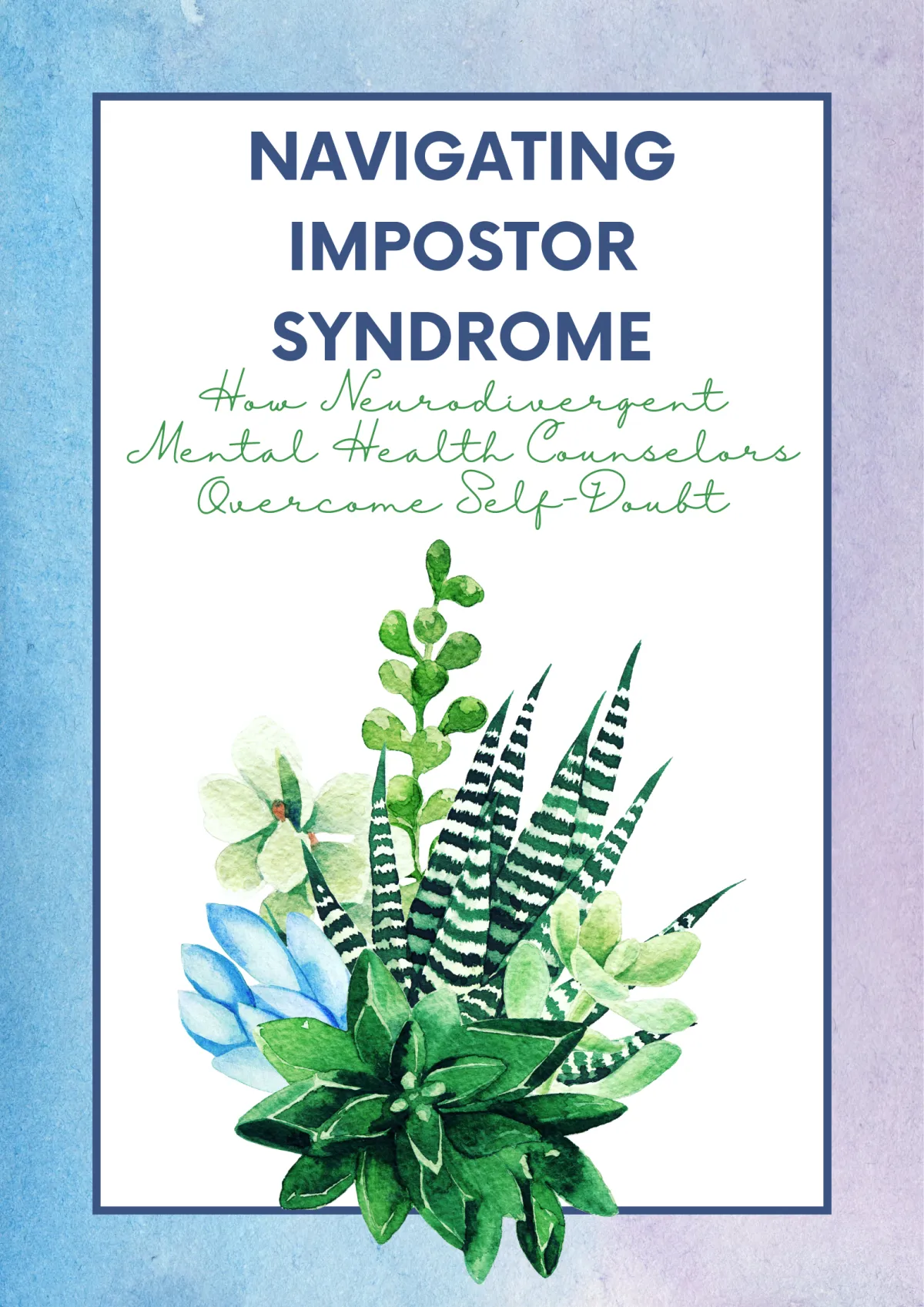
The Impact of Impostor Syndrome on Neurodivergent Mental Health Counselors
Impostor syndrome is a common phenomenon that affects professionals across all industries, including mental health counseling. For neurodivergent individuals pursuing a career in counseling, the challenges of navigating impostor syndrome can be particularly daunting. As new therapists and counselors-in-training, it is crucial to address and overcome self-doubt in order to thrive in the field. In this blog, we will explore how neurodivergent mental health counselors can conquer impostor syndrome and establish confidence in their abilities to help others.
Recognizing the Signs of Impostor Syndrome
To effectively overcome impostor syndrome, it is crucial for neurodivergent mental health counselors to recognize the signs and symptoms. Common indicators include persistent self-doubt, feeling undeserving of success, and attributing achievements to external factors rather than their own capabilities. By increasing self-awareness and acknowledging these patterns of thought, counselors can begin to challenge and reframe negative beliefs. In the upcoming section, we will delve deeper into specific strategies and techniques that can help neurodivergent counselors identify and combat impostor syndrome in their professional journey. Stay tuned for actionable tips to build confidence and excel in the field of mental health counseling.
Strategies to Overcome Impostor Syndrome in the Workplace
In the workplace, it's essential for neurodivergent mental health counselors to implement specific strategies to combat impostor syndrome effectively. One key approach is setting realistic goals and celebrating small achievements along the way. Additionally, cultivating a supportive network of colleagues and mentors can provide invaluable feedback and encouragement. Incorporating regular self-reflection and mindfulness practices can also help in managing self-doubt and building resilience. Stay tuned for practical tips on how to navigate workplace challenges and enhance your confidence as a neurodivergent mental health counselor.
Seeking Support and Resources for Neurodivergent Mental Health Counselors
Building a strong support system is crucial for neurodivergent mental health counselors to navigate impostor syndrome. Seek out organizations, online communities, and mentorship programs specifically tailored for neurodivergent individuals in the mental health profession. Utilize resources such as workshops, webinars, and books that offer insights and strategies for overcoming self-doubt. Remember, you are not alone in this journey. Collaborating with like-minded peers and accessing tailored resources can empower you to embrace your unique strengths and capabilities in the field. Stay proactive in seeking support and leveraging available resources to thrive in your role as a neurodivergent mental health counselor.
Cultivating a Supportive Work Environment for Neurodivergent Professionals
Cultivating a supportive work environment is essential for neurodivergent professionals to thrive in their roles. Advocate for inclusive practices within your workplace, such as flexible work arrangements and accommodations that cater to diverse needs. Educate colleagues and supervisors about neurodiversity to foster understanding and create a welcoming atmosphere. Encourage open communication and feedback to address any challenges that may arise. Remember, your unique perspective adds value to the team. By promoting a culture of acceptance and support, you contribute to a positive work environment that benefits both yourself and your colleagues. Embrace your strengths and continue to advocate for inclusivity in the workplace.
The Power of Self-Awareness and Personal Growth
Acknowledging and understanding your own strengths, weaknesses, and triggers is a crucial step in overcoming impostor syndrome as a neurodivergent mental health counselor. Invest in personal growth through self-reflection, therapy, and professional development. Recognize your achievements and celebrate your successes, no matter how small they may seem. By prioritizing self-awareness, you empower yourself to combat self-doubt and build resilience in the face of challenges. Remember, growth is a continuous journey, and each step forward is a testament to your dedication and perseverance in your role. Stay committed to your personal development and embrace the transformative power of self-awareness.
Empowering Neurodivergent Mental Health Counselors to Thrive
In conclusion, navigating impostor syndrome as a neurodivergent mental health counselor requires a combination of self-awareness, self-compassion, and dedication to personal growth. By embracing your strengths, acknowledging your triggers, and celebrating your achievements, you can overcome self-doubt and build resilience in your role. Remember that your unique perspective and experiences as a neurodivergent individual bring valuable insights and empathy to your work. Stay committed to your personal development journey, seek support when needed, and continue to empower yourself to thrive in your profession. Together, we can create a more inclusive and supportive environment for all mental health professionals.



